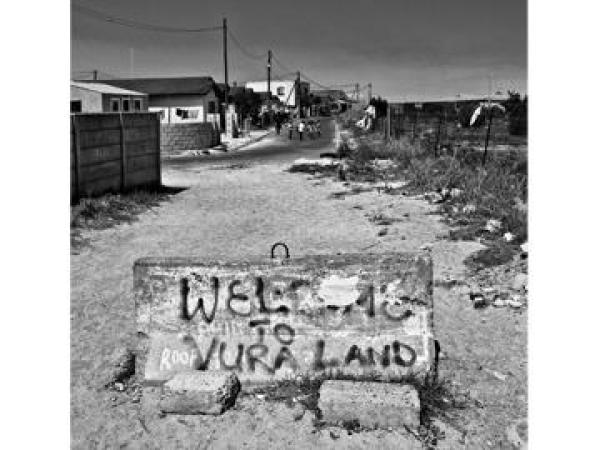Nyanga gangster puts the blame on his family

“I was not born a gangster, but I will die one. This is not a choice, but it’s because of my circumstances. I want to change, but I can’t. I do not know what to change to and how,” says gangster.
Kenana (not his real name) is 23. He never went to high school.
“I was born to be poor, to suffer, and not be successful in life. There is no one in my family that is a success or went to school and finished grade 12,” says Kenana.
He told GroundUp he had to take care of his five siblings while his mother was drunk every day.
“When I was doing grade four I had to go to school without food. I would come home and my mother would be sleeping on the floor, drunk, and my brothers and sisters would go to the neighbours to beg for food.”
His father left his unemployed mother when he was 12 and the family struggled after that.
“After my father left, my mother dated another man and got four more kids. I hate my father because it is because of him that we are struggling. I see the man every day and he didn’t take care of us. We had to beg other people for food and money to survive,” he says.
When he was growing up he wanted to own a business and put his siblings through school.
“My mother is an alcoholic, she doesn’t work, and my siblings depend on government grants for survival. I depend on my gang life.”
“I am not proud of my lifestyle, but I hurt other people so that I can put food on the table. My brother died last year, because he was also in a gang, and that is how males in my family have to survive.”
His brother was beaten to death by a mob after he stole a computer and sold it.
But Kenana’s mother says, “I did not make a mistake by giving birth to him. And if he blames me for his suffering then that is his problem. He chose to be in a gang.”
“When he was growing up I sent him and his brother to a foster home but they came back claiming they missed their siblings and they were abused at the home. I welcomed them back not knowing they will later become gangsters,” she said.
Kenana has never been convicted. He claims to have killed and robbed people and that the community is scared of him.
“I belong to the Vura gang in Nyanga. I am the leader in my group. There were 20 of us, but now we are only 16. The others died due to the fighting [gang war] … One was beaten to death by the community,” says Kenana.
“My mother had to move out of her house because of my gang activities. She didn’t feel safe so she built a shack not far from the house so that the children will be safe.”
“My home is currently a hiding place. My gang members stay there. We plan our activities from there, and later we sleep in the house to keep each other safe,” he says.
Kenana’s home has broken windows and doors. A few months ago, a rival gang came to the house and started shooting. He managed to escape using a back door. His home is full of bullet holes.
What they call the safe house is very dark. There is no electricity. There is one old chair in the front room and a sponge in the bedroom with cardboard. There are dusty plates and dirty cutlery. The roof of the house has a hole. They go up to the roof to hide when they are attacked.
Kenana’s sister, who is 14, doesn’t visit the house because she is scared she might be harmed. His four-year-old brother goes to the house almost every day to visit the gang and sit with them.
When GroundUp visited the house there were six men smoking weed and tik. One man was playing with a gun; he claimed it did not have bullets.
“I use this to scare people when I rob them,” he said.
Last month, Kenana and his gang robbed a man at an ATM. But the man took out a gun and shot at them. Kenana was hit in both legs and hospitalized for weeks.
“I do not think my life will change right now. The only way to leave this gang life is by death. If I leave, where am I going to go? Who will assist me in life? I have a family, but they are not useful to me.
“What kills me is the fact that my younger brother will also become like me … and rob people for a living. My mother knows I blame her for this suffering and if my father did not have other children I would have killed him. But I do not want his children to grow up without a father like me … I live for the moment, I do not plan my future because there is no future to plan. I might die any moment.”
Support independent journalism
Donate using Payfast

Don't miss out on the latest news
We respect your privacy, and promise we won't spam you.
Next: Weekly newsletter 16 - 20 June 2014: Protests at State of the Nation address and other stories
Previous: Family of 13-year-old take legal steps to compel SAPS

This article is licensed under a Creative Commons Attribution-NoDerivatives 4.0 International License.
